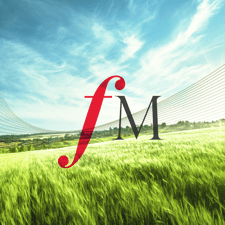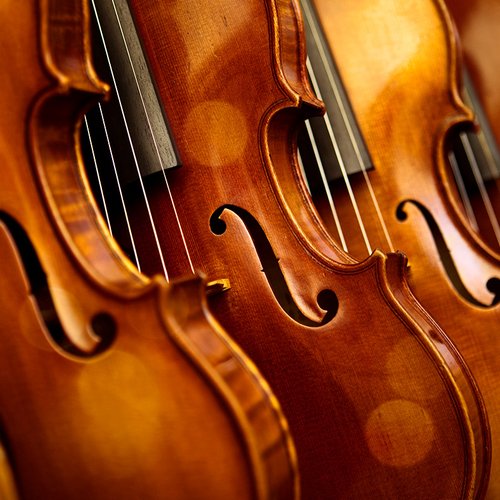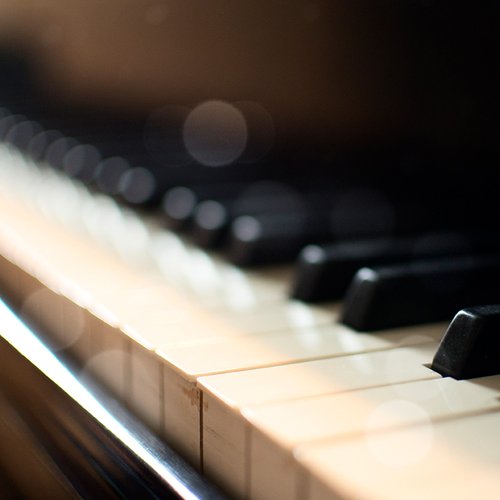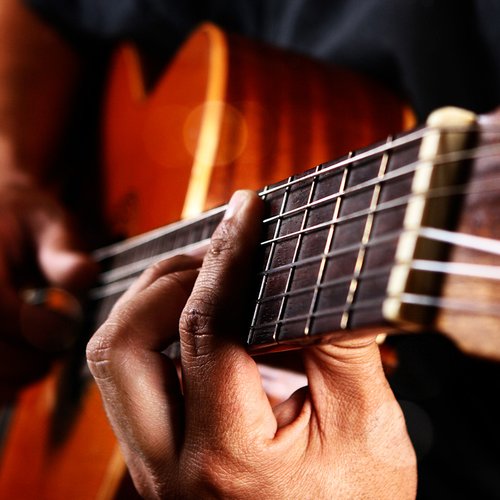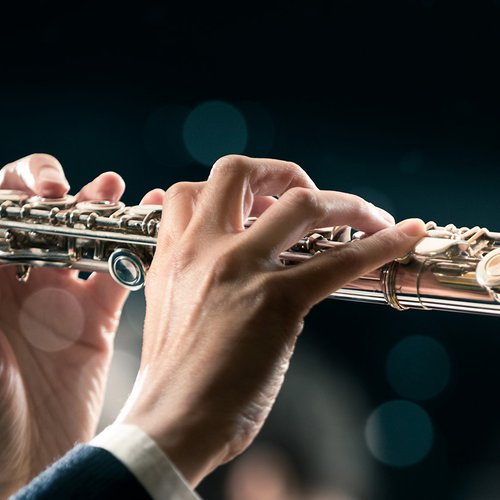Exclusive
The Holocaust-surviving violins that endured atrocities to tell a vital story
27 January 2021, 09:28
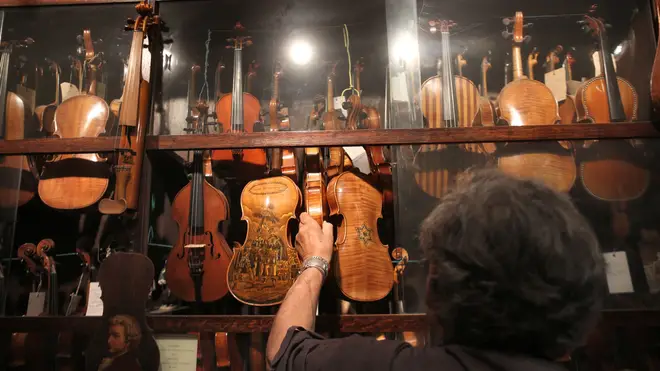
The Violins of Hope contain in their wooden forms the stories of utmost pain, loss and hope, having survived a period in history that many of their owners didn’t.
The philosopher and writer George Santayana once said, “those who cannot remember the past are condemned to repeat it.”
Today, the atrocities of the Holocaust are remembered in stories: told through literature, film, art and word of mouth. But knowledge also exists in artefacts that outlive the times they’re created in, or before, and endure. The Violins of Hope are such artefacts.
The Violins of Hope
The Violins of Hope are a collection of violins, violas and cellos that were owned by Jewish people, and played by Jewish musicians, before and during World War Two. The project to collect these instruments and tell their stories was founded by Israeli violin maker, Amnon Weinstein.
The instruments have endured the atrocities faced by their owners during the Holocaust. They poignantly carry the memories, scars and stories of the survivors, those lost, and those family members and others who have handed them in to the collection.
All the instruments have one thing in common: not only did they endure the conflict, but they also ensured the Holocaust will be remembered through the powerful medium of music.
Read more: This utterly inspirational pianist survived the Holocaust >
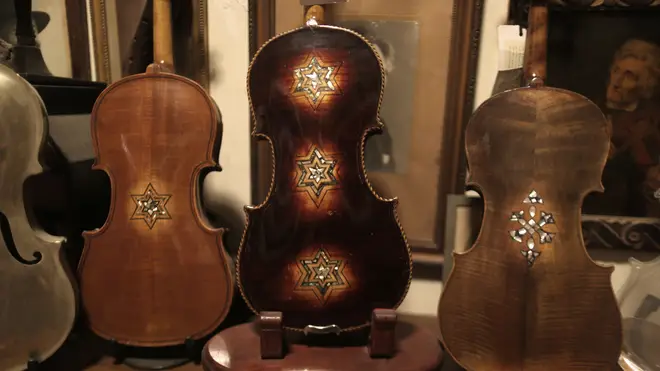
“Often these instruments were played in brutal circumstances during the Holocaust,” Canadian composer Jaap Nico Hamburger tells Classic FM.
“Examples include the Men and Women’s orchestras in Auschwitz, where prisoners were forced to play upbeat tunes as fellow prisoners were marched into the gas chambers.”
A famous example is the niece of Gustav Mahler, Alma Rosé, a violin prodigy who before the war gave concerts all over Europe, and during was made to be leader of the Woman’s Orchestra in Auschwitz. She died at Auschwitz in 1944.
“Some of these instruments survived, even if the musicians did not,” Hamburger says. “It’s about giving a voice, through these instruments, to musicians who showed resilience, dared to hope, and defied the odds by creating art in a place where art did not live.”
The vital role of memory
Hamburger has written two symphonies to commemorate the lives lost during the Holocaust, and the Violins of Hope were played at the premiere of the Second Symphony, which have been released in a new recording on Leaf Music.
“Before the Second World War, approximately 9.5 million Jews lived in Europe (1.7 percent of the total European population). By 1945, almost 60 percent had been murdered,” Hamburger says.
“If we just look at the demographic of children in the ages of 0-18 years old, we see that by the end of World War Two, approximately 95 percent of Jewish children in occupied Europe had been murdered.”
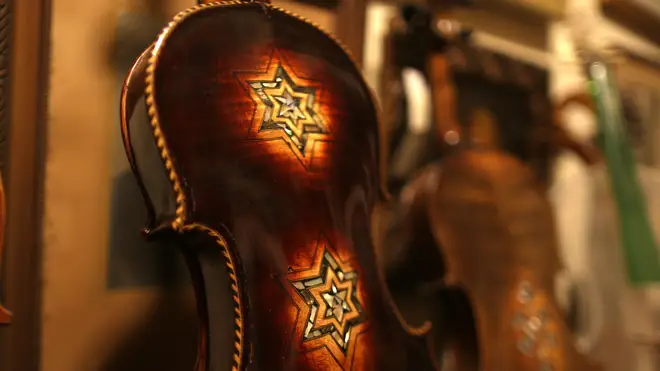
The composer stresses the importance of memory in his work. “Why is it important to remember these events? Well, in the 20th century, a highly civilised, academically and technically advanced society in the middle of Europe conceived, organised, and perpetrated mass murder on an industrial scale.
“It portrayed this mass murder as a national priority and carried out the mass murder with the active participation (or at least condoning) of a majority of its population.”
Hamburger adds that by remembering the past, we can look to the future. “It might be preferable to think of these events as having occurred a long time ago, in a country far away.
“However, there have been far too many repeat atrocities since, that put the slogan ‘Never Again’ to shame: the genocide of Tutsis in Rwanda, the war in the former Yugoslavia, the civil war in Syria, the internment of Uygurs in western China, just to name a few.
“If we fail to learn even from the most extreme events such as the Holocaust, then indeed we are doomed to repeat them,” he says, speaking exclusively to Classic FM.
Hamburger is also the son of Holocaust survivors. “My parents turned their experience during the war, and the loss of their entire families, into fuel for rebuilding, infusing me with a sense of responsibility toward my fellow human beings.”

Watch beautiful Ave Maria harp and violin cover
The recording of Symphony No. 2 ‘Children War Diaries’ featured the Violins of Hope.
“It made the experience for me, and hopefully also for the audience, so much more meaningful. I remain deeply grateful to the Montreal Holocaust Museum and Concept Duo who made this possible.”
Speaking about his two new symphonies, Hamburger says, “Persecution of Jews is as old as the history of the Jewish people. But we are still here. That’s resilience. We build, and re-build, we create, and re-create.
“In Symphony No.1, I try to give voice to those who suffered and survived, and in Symphony No.2, to those who suffered and did not.
“Life and music are inconceivable in the absence of purpose. And with purpose comes hope and resilience. For me, hope and resilience are as essential as food, drink, light and air.”
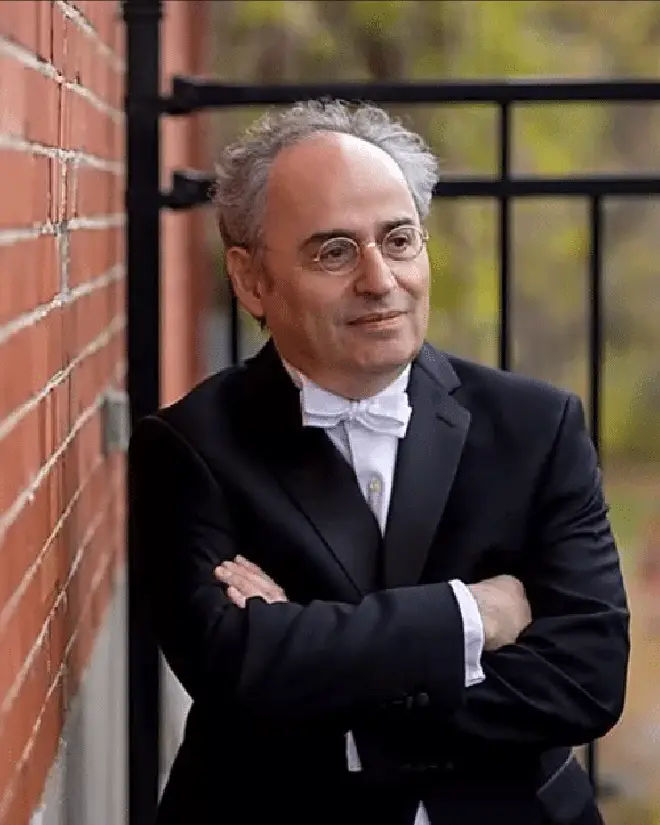
Hope in 2020 and beyond
Hamburger’s inspiring belief in hope, crucially applied to the Holocaust and Holocaust memory, can also be of comfort today.
Coronavirus has made the past year challenging for music and the arts with performances coming to a halt, and unspeakably difficult for those who have been seriously ill or lost loved ones due to COVID-19. But where there’s darkness, there is always hope.
“The most hopeful thing for me is to see how people all over the world are demonstrating resilience and a willingness to make extraordinary efforts to protect themselves and each other from this invisible enemy,” Hamburger says.
“There will soon be working vaccines and even more effective antiviral treatments. Society will re-define a ‘new normal’, concert halls will reopen, and artists will reconnect with their audiences.”
He adds: “And hopefully, all of that will happen in a spirit of heightened appreciation for life, and the binding beauty of ‘shared experience’.”
Jaap Nico Hamburger’s Symphony No. 1 ‘Remember to Forget’ and Symphony No. 2 ‘Children War Diaries’, featuring the Violins of Hope, are out now on Leaf Music. Visit leaf-music.ca and www.violins-of-hope.com to find out more.
